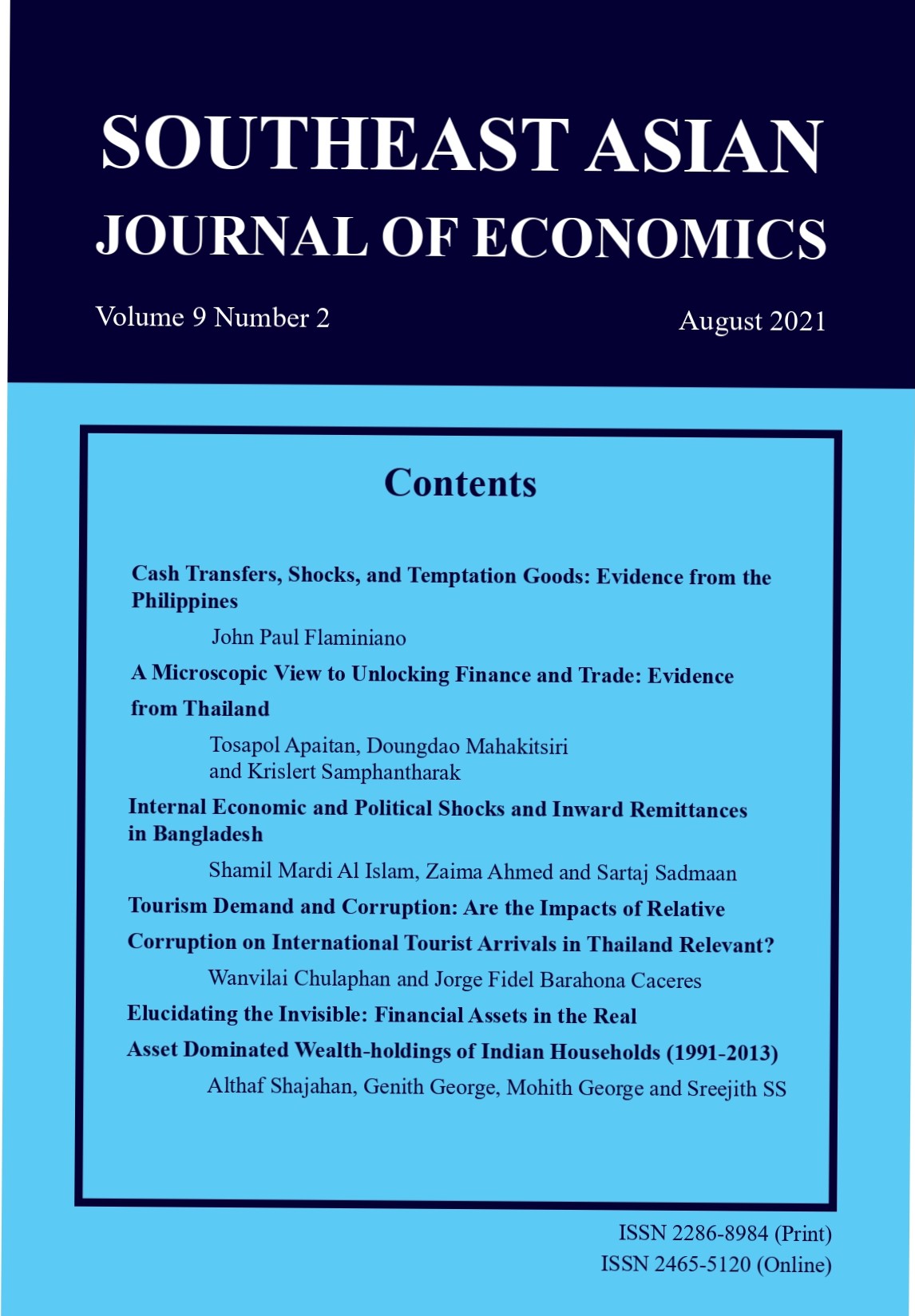Internal Economic and Political Shocks and Inward Remittances in Bangladesh
Abstract
This paper explores the effect of economic and political instability (measured from media coverage), in addition to macro variables, such as deposit rate, exchange rate, inflation rate, and oil price, on the inflow of remittances to Bangladesh. An ARDL model is employed using monthly data from January 2013 to December 2019 to study the impact of the aforementioned factors in determining the amount of remittances that enter Bangladesh through official channels. Economic/political instability is found to have a negative impact on remittances in the long run, while deposit rate and exchange rate are found to be positively related to remittances. In the short run, economic/political stability is found to have no statistically significant impact on remittance flows, while inflation is positively associated and remittances in the previous period are negatively associated with remittances in the current period.
Downloads
Published
How to Cite
Issue
Section
License
The submission of a manuscript implies that the paper is an original work and has not been published elsewhere. The author(s) authorize the journal to reproduce or distribute the paper in printed or other electronic forms.







